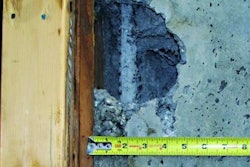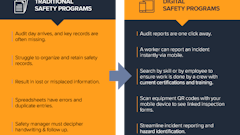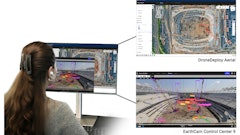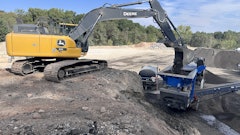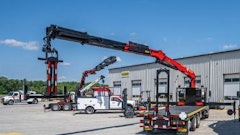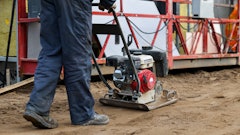The nation's transportation chief on Monday said a $450 million investment in high-speed rail in the North Jersey-New York region will create construction jobs, cut congestion on roads and allow Amtrak to operate faster -- up to 160 mph in parts of the region -- and more efficiently.
Lawmakers and Transportation Secretary Ray LaHood also addressed the scuttled Hudson River tunnel project, which used $271 million federal dollars. The money for the upgrades comes from redistribution of $2 billion in high-speed rail funds that Florida Gov. Rick Scott rejected this year.
Still, LaHood said during a news conference at New York Penn Station that high-speed rail must be part of the legacy of the region and the country. By 2050, there will be 100 million new people in the United States, he said.
"We simply cannot build enough highways, airports to support this growth," he said.
LaHood said the Federal Railroad Administration selected 15 states and Amtrak to receive $2 billion for 22 high-speed intercity passenger rail projects. The funds for Amtrak will support power, signal, track and catenary improvements that will boost capacity, reliability and speed.
New Jersey Sen. Frank Lautenberg and New York Sen. Chuck Schumer both facetiously thanked Scott for turning back the funds, which had originally been awarded to Florida to build a high-speed line between Tampa and Orlando.
"We'll take it," Schumer said. "Florida's loss is New York and New Jersey's gain."
Lautenberg criticized Scott's rejection of the money, then extended that criticism to Governor Christie, who in October turned away $3 billion in federal dollars that was slated for a project that called for constructing a commuter rail tunnel under the Hudson River that linked North Jersey and New York.
"A governor that rejects transportation dollars is penny-wise and pound-foolish," Lautenberg said. "Imagine what would happen if our transportation [system] would come to a standstill, if we see cars piling up on the highways ... pockets drained by $4 gasoline."
New Jersey "learned that if you reject federal money, you gain nothing and you pay a heck of a price," he said.
Christie spokesman Kevin Roberts said the governor felt that the Hudson River commuter rail project, known as the Access to the Region's Core, or ARC, project was a bad deal for New Jersey and the taxpayers, with billions in overruns that would have been borne exclusively by New Jersey."
ARC, an NJ Transit project, was budgeted at $8.7 billion, including $3 billion the Federal Transit Administration was to contribute and $3 billion that was to come from the Port Authority. Christie canceled it after projections said costs could climb to as much as $13 billion.
Roberts said Christie recognizes the need for trans-Hudson rail, but believes the costs should be shared. New Jersey alone was responsible for covering the costs of ARC that went over its $8.7 billion budget, Roberts said.
The FTA has since demanded that NJ Transit return $271 million in federal funding the state had already spent on ARC before Christie killed the project in October.
Lautenberg on Monday chastised the Christie administration for hiring a Washington, D.C., law firm to fight the FTA's demand for repayment. Invoices released by the Attorney General's Office on Monday show the law firm, Patton Boggs, has so far been paid more than $950,000 to fight the FTA. That amount covers work the law firm performed between December and February.
However, the FTA in April rejected the law firm's arguments and said Christie was aware the state would be on the hook to pay back the federal dollars already spent if ARC was canceled. Christie has said publicly that he is not going to pay back the $271 million.
At Monday's news conference, LaHood brushed aside those comments, saying: "We have been working with the Governor's Office on this issue" and are awaiting an official response.
Meanwhile, Amtrak President Joseph Boardman said high-speed rail funding will help lay the groundwork for Amtrak's proposed $13.5 million Gateway Project, a high-speed rail project that includes plans for a new pair of rail tunnels under the Hudson River, between North Jersey and New York.
Boardman is still seeking public and private money to support the Gateway project.
Amtrak's Acela Express trains travel at their top speeds of 150 mph in parts of Massachusetts and west of Providence, R.I., Amtrak spokesman Cliff Cole said. However, the average speed between New York and Washington is 82 mph. It is 76 mph between New York and Boston, Cole said.
The improvements will allow speeds to climb to 160 mph in one 24-mile section of the Northeast Corridor.
By the numbers - U.S. Transportation Secretary Ray LaHood on Monday announced the Federal Railroad Administration's awarding of $2 billion for high-speed intercity rail projects.
* 24 states, the District of Columbia and Amtrak submitted nearly 100 applications for a share of the money, which was rejected by Florida earlier this year.
* 15 states and Amtrak were selected by the FRA to receive money for 22 high-speed intercity passenger rail projects.* The projects will be part of a nationwide network that will connect 80 percent of Americans to high-speed rail in 25 years.
* $795 million will go to the Northeast Corridor, including $450 million for Amtrak.
* Investments in Amtrak will increase speeds to 160 mph in some parts of the corridor, which runs from Boston to Washington, D.C.






